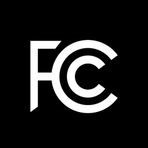Media Firestorm Erupts Over Kimmel Suspension, Free Speech Under Fire
September 23, 2025, 9:48 pm

Location: United States, District of Columbia, Washington
Employees: 1001-5000
Founded date: 1934
Total raised: $1.43B

Location: United States, California, Los Angeles
Employees: 201-500
Founded date: 1930
Business Wire
Location: United States, California, San Francisco
Employees: 501-1000
Founded date: 1961
Total raised: $157M
A political earthquake shakes US media. Late-night host Jimmy Kimmel faced indefinite suspension by ABC. This followed FCC Chair Brendan Carr's warnings. Kimmel linked a conservative activist's killer to a political movement. Court documents then revealed differing affiliations for the accused. The FCC, led by a Trump appointee, signaled potential license action against ABC's parent company, Disney. This sparked fierce debate. Critics decried government overreach and censorship. Prominent politicians and media figures condemned the FCC's actions. They cited threats to First Amendment rights. The incident spotlights the volatile intersection of politics, media, and regulatory power. It highlights a perilous new era for free expression.
A seismic event has rocked American broadcasting. Late-night television host Jimmy Kimmel is off the air. ABC suspended "Jimmy Kimmel Live!" indefinitely. This swift action followed intense pressure. Federal Communications Commission Chairman Brendan Carr had issued stark warnings. The controversy ignited over Kimmel's on-air comments. He discussed the killing of conservative activist Charlie Kirk.
Kimmel's monologue linked Kirk's alleged killer, Tyler Robinson, to the "Make America Great Again" movement. This claim quickly unraveled. Utah court documents surfaced. They described Robinson differently. The accused reportedly leaned left. He supported gay and trans rights. He claimed Kirk spread "too much hate." This discrepancy fueled the FCC's intervention.
FCC Chairman Carr condemned Kimmel's remarks. He called them "truly sick." He asserted Kimmel appeared to "mislead" the public. Carr, a Trump nominee, hinted at severe consequences. He warned ABC and its parent, Disney. "We can do this the easy way or the hard way," Carr stated. This phrase echoed through the media landscape. It suggested broadcasters had a choice: silence Kimmel or face FCC action. Carr reiterated the FCC's mandate. Broadcasters must serve the public interest.
The FCC holds immense power. It grants and renews broadcast licenses. These licenses are vital for networks like ABC. Carr's comments raised alarms. Many saw them as regulatory strong-arming. Hours after Carr's public warnings, Nexstar Media Group acted. Its ABC-affiliated stations pre-empted Kimmel's show. Nexstar seeks FCC approval for a major merger. This timing suggested a chilling effect.
President Donald Trump applauded the suspension. He praised ABC's "courage." Trump also targeted other late-night hosts. He called for NBC to cancel its own programs. Trump dismissed Kimmel as untalented. He echoed Carr's sentiment regarding changes in the media landscape. Carr described a "massive shift" in dynamics. He added, "we're not done yet."
The FCC's posture drew sharp rebukes. House Democratic leaders demanded Carr's resignation. They cited a "corrupt abuse of power." They accused Carr of "bullying ABC." Senator Ted Cruz, a Republican, also criticized Carr. Cruz compared Carr's "easy way or hard way" remarks to a "mafia boss." He called the statement "dangerous as hell." Cruz, despite his personal dislike for Kimmel, warned against government censorship. He argued such power would ultimately harm conservatives too. Trump later disagreed with Cruz, calling Carr an "incredible American patriot."
Former President Barack Obama weighed in. He criticized the current administration. Obama highlighted "government coercion." He said it attacked free speech. He called it a "dangerous level" of cancel culture. Former Vice President Kamala Harris echoed these concerns. She condemned the "outright abuse of power." Harris urged media corporations not to "capitulate" to threats.
The media community rallied behind Kimmel. Stephen Colbert delivered a passionate defense. He declared, "tonight, we are all Jimmy Kimmel." Colbert blasted the suspension as "blatant censorship." He called Trump an "autocrat." Colbert's own show faced cancellation by CBS. This followed his criticism of a payment to Trump. He knows the pressure first-hand.
Late-night legend David Letterman also spoke out. He found the suspension "ridiculous." Letterman warned of "managed media." He saw a clear path to government control. He compared Kimmel's situation to Colbert's earlier cancellation. Letterman suggested media companies capitulate under political pressure. Jon Stewart, another late-night icon, made a rare extra appearance on his show. He was expected to address the controversy directly.
Protests erupted. Demonstrators gathered outside Disney's offices. They chanted slogans of support for Kimmel. They called for ABC to stand firm. The incident sparked a national conversation. It touched upon the very foundations of American democracy. Free speech, media independence, and regulatory integrity became central themes.
This unprecedented episode exposes deep fractures. It highlights the politicization of broadcasting. It raises critical questions about regulatory authority. Is the FCC safeguarding public interest or acting as a political enforcer? The implications extend far beyond one late-night show. They challenge the role of satire, criticism, and independent journalism in a democracy. The "massive shift" Carr mentioned feels more like a direct assault. The nation watches. The future of free expression hangs in the balance.
A seismic event has rocked American broadcasting. Late-night television host Jimmy Kimmel is off the air. ABC suspended "Jimmy Kimmel Live!" indefinitely. This swift action followed intense pressure. Federal Communications Commission Chairman Brendan Carr had issued stark warnings. The controversy ignited over Kimmel's on-air comments. He discussed the killing of conservative activist Charlie Kirk.
Kimmel's monologue linked Kirk's alleged killer, Tyler Robinson, to the "Make America Great Again" movement. This claim quickly unraveled. Utah court documents surfaced. They described Robinson differently. The accused reportedly leaned left. He supported gay and trans rights. He claimed Kirk spread "too much hate." This discrepancy fueled the FCC's intervention.
FCC Chairman Carr condemned Kimmel's remarks. He called them "truly sick." He asserted Kimmel appeared to "mislead" the public. Carr, a Trump nominee, hinted at severe consequences. He warned ABC and its parent, Disney. "We can do this the easy way or the hard way," Carr stated. This phrase echoed through the media landscape. It suggested broadcasters had a choice: silence Kimmel or face FCC action. Carr reiterated the FCC's mandate. Broadcasters must serve the public interest.
The FCC holds immense power. It grants and renews broadcast licenses. These licenses are vital for networks like ABC. Carr's comments raised alarms. Many saw them as regulatory strong-arming. Hours after Carr's public warnings, Nexstar Media Group acted. Its ABC-affiliated stations pre-empted Kimmel's show. Nexstar seeks FCC approval for a major merger. This timing suggested a chilling effect.
President Donald Trump applauded the suspension. He praised ABC's "courage." Trump also targeted other late-night hosts. He called for NBC to cancel its own programs. Trump dismissed Kimmel as untalented. He echoed Carr's sentiment regarding changes in the media landscape. Carr described a "massive shift" in dynamics. He added, "we're not done yet."
The FCC's posture drew sharp rebukes. House Democratic leaders demanded Carr's resignation. They cited a "corrupt abuse of power." They accused Carr of "bullying ABC." Senator Ted Cruz, a Republican, also criticized Carr. Cruz compared Carr's "easy way or hard way" remarks to a "mafia boss." He called the statement "dangerous as hell." Cruz, despite his personal dislike for Kimmel, warned against government censorship. He argued such power would ultimately harm conservatives too. Trump later disagreed with Cruz, calling Carr an "incredible American patriot."
Former President Barack Obama weighed in. He criticized the current administration. Obama highlighted "government coercion." He said it attacked free speech. He called it a "dangerous level" of cancel culture. Former Vice President Kamala Harris echoed these concerns. She condemned the "outright abuse of power." Harris urged media corporations not to "capitulate" to threats.
The media community rallied behind Kimmel. Stephen Colbert delivered a passionate defense. He declared, "tonight, we are all Jimmy Kimmel." Colbert blasted the suspension as "blatant censorship." He called Trump an "autocrat." Colbert's own show faced cancellation by CBS. This followed his criticism of a payment to Trump. He knows the pressure first-hand.
Late-night legend David Letterman also spoke out. He found the suspension "ridiculous." Letterman warned of "managed media." He saw a clear path to government control. He compared Kimmel's situation to Colbert's earlier cancellation. Letterman suggested media companies capitulate under political pressure. Jon Stewart, another late-night icon, made a rare extra appearance on his show. He was expected to address the controversy directly.
Protests erupted. Demonstrators gathered outside Disney's offices. They chanted slogans of support for Kimmel. They called for ABC to stand firm. The incident sparked a national conversation. It touched upon the very foundations of American democracy. Free speech, media independence, and regulatory integrity became central themes.
This unprecedented episode exposes deep fractures. It highlights the politicization of broadcasting. It raises critical questions about regulatory authority. Is the FCC safeguarding public interest or acting as a political enforcer? The implications extend far beyond one late-night show. They challenge the role of satire, criticism, and independent journalism in a democracy. The "massive shift" Carr mentioned feels more like a direct assault. The nation watches. The future of free expression hangs in the balance.
